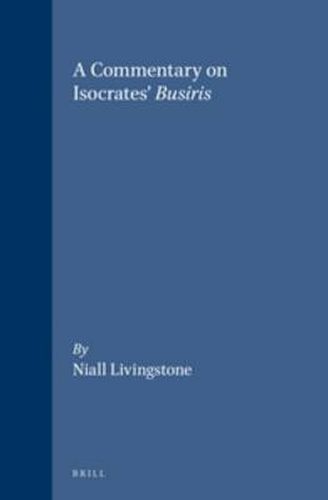Readings Newsletter
Become a Readings Member to make your shopping experience even easier.
Sign in or sign up for free!
You’re not far away from qualifying for FREE standard shipping within Australia
You’ve qualified for FREE standard shipping within Australia
The cart is loading…






This volume contains a scholarly commentary on the puzzling work Busiris - part mythological jeu d'esprit , part rhetorical treatise and part self-promoting polemic - by the Greek educator and rhetorician Isocrates (436-338 BC). The commentary reveals Isocrates’ strategies in advertising his own political rhetoric as a middle way between amoral sophistic education and the abstruse studies of Plato’s Academy. Introductory chapters situate Busiris within the lively intellectual marketplace of 4th-century Athens, showing how the work parodies Plato’s Republic , and how its revisionist treatment of the monster-king Busiris reflects Athenian fascination with the alien wisdom of Egypt. As a whole, the book casts new light both on Isocrates himself, revealed as an agile and witty polemicist, and on the struggle between rhetoric and philosophy from which Hellenism and modern humanities were born.
$9.00 standard shipping within Australia
FREE standard shipping within Australia for orders over $100.00
Express & International shipping calculated at checkout
This volume contains a scholarly commentary on the puzzling work Busiris - part mythological jeu d'esprit , part rhetorical treatise and part self-promoting polemic - by the Greek educator and rhetorician Isocrates (436-338 BC). The commentary reveals Isocrates’ strategies in advertising his own political rhetoric as a middle way between amoral sophistic education and the abstruse studies of Plato’s Academy. Introductory chapters situate Busiris within the lively intellectual marketplace of 4th-century Athens, showing how the work parodies Plato’s Republic , and how its revisionist treatment of the monster-king Busiris reflects Athenian fascination with the alien wisdom of Egypt. As a whole, the book casts new light both on Isocrates himself, revealed as an agile and witty polemicist, and on the struggle between rhetoric and philosophy from which Hellenism and modern humanities were born.